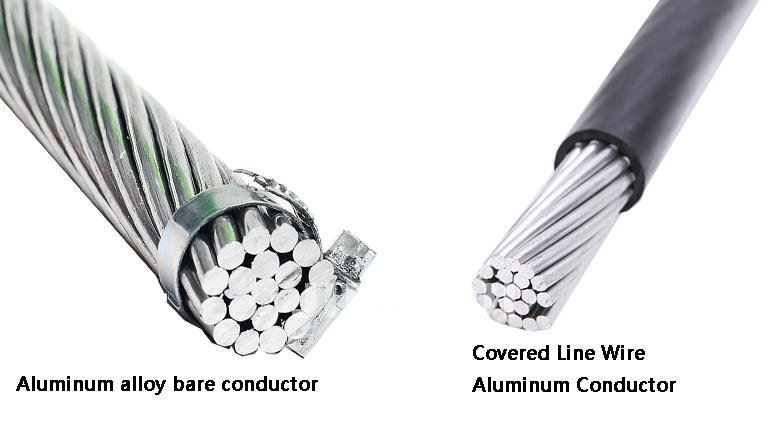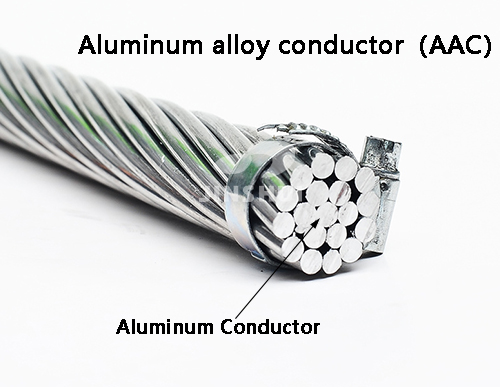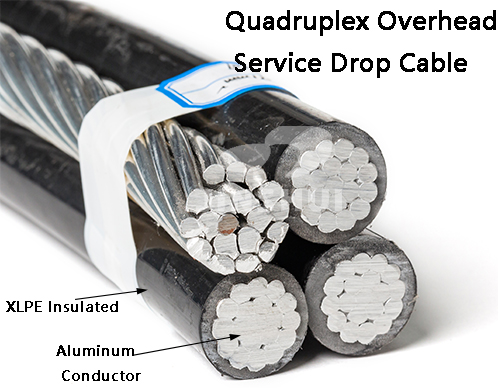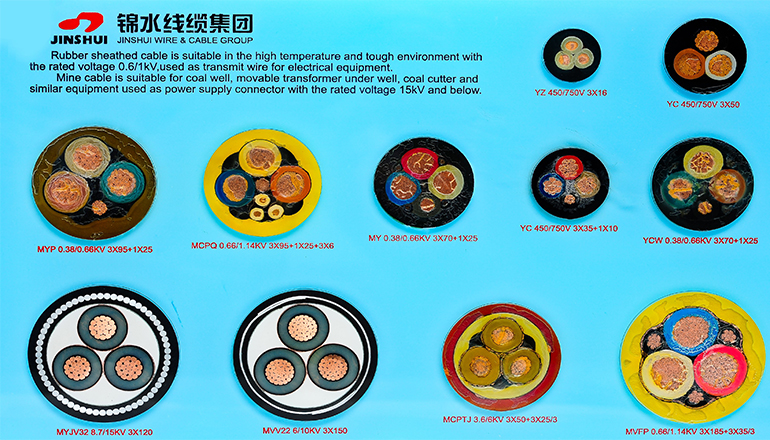- Offices Time:24 Hours Online
- Email:[email protected]
- WhatsApp:+8618339938759

Posted on September 7, 2023
What is aluminum alloy cable?
The concept of aluminum alloy cable
Aluminum alloy cable is a new material power cable with AA8030 series aluminum alloy material as the conductor. The resistivity of aluminum alloy is between aluminum and copper, higher than copper and slightly lower than aluminum. Under the premise of the same current carrying capacity, the weight of an aluminum alloy conductor of the same length is only half that of copper. When the cross-sectional area of the aluminum alloy conductor is 1.5 times that of copper, the aluminum alloy cable has the same conductivity as the copper cable, achieving the same current carrying capacity, resistance and line loss.

Aluminum alloy cables have advantages in many aspects, making them widely used in the field of power transmission and distribution, the following are the advantages of aluminum alloy cables:
1. Light weight
Under the same volume, the actual weight of aluminum alloy is about one-third of that of copper. The use of aluminum alloy conductors instead of copper conductors not only reduces the weight of the cable, but also reduces the cost of installation and makes installation easier.
2. Electrical conductivity is better than aluminum standard
The conductivity of aluminum alloy is 61.5% of copper IACS, the most commonly used benchmark material, and the ampacity is 79% of copper, which is better than the standard of pure aluminum.
3. Creep resistance is greatly improved
The alloy material and annealing process of the aluminum alloy conductor reduce the “creep” tendency of the conductor under heat and pressure. Compared with pure aluminum, the creep resistance is improved by 300%, avoiding relaxation problems caused by cold flow or creep. .
4. Tensile strength and elongation
Compared with pure aluminum conductors, aluminum alloy conductors have greatly improved tensile strength and elongation to 30% due to the addition of special ingredients and the adoption of special processing techniques, making them safer and more reliable to use.
5. Thermal expansion coefficient
The coefficient of thermal expansion is used to calculate the dimensional change of a material as the temperature changes. Aluminum alloys have a thermal expansion coefficient comparable to copper, and aluminum connectors have been used reliably for copper and aluminum conductors for many years, and most electrical connectors in use today are made of aluminum, which is especially suitable for aluminum alloys. Therefore, the expansion and contraction of the aluminum alloy conductor and the connectors used today are consistent, and the advantages of the aluminum alloy conductor can be better utilized.
6. Strong self-weight bearing capacity
Aluminum alloy improves the tensile strength of pure aluminum, the aluminum alloy cable can support the self-weight of 4000 meters in length, and the copper cable can only support 2750 meters. This advantage is especially prominent in the wiring of long-span buildings (such as stadiums).
7. Anti-corrosion performance
Aluminum’s inherent anti-corrosion properties result from the formation of a thin but strong oxide layer that is exceptionally resistant to all forms of corrosion when the aluminum surface comes into contact with air. The rare earth elements added to the alloy can further improve the corrosion resistance of the aluminum alloy, especially the electrochemical corrosion.
8. Better flexibility
As long as pure aluminum cables are bent at a certain angle a few times, the conductors will crack or break, which can easily cause accidents. However, aluminum alloy power cables can withstand dozens of bends, eliminating the problems that occurred during the installation and use of pure aluminum cables in the past. The hidden danger of accidents has been greatly improved.
9. Environmental protection
Aluminum alloys typically require fewer resources to manufacture than copper and therefore have a lower environmental impact. In addition, aluminum alloy cables can be more easily recycled at the end of their useful life.

10. Suitable for long-distance power transmission
Due to its light weight and suitable strength, aluminum alloy cables are suitable for long-distance power transmission, which can reduce the cost and energy loss of transmission lines. Therefore, it becomes the best choice for overhead cables.
In addition, Zhengzhou Jinshui Wire & Cable Group reminds everyone to notice that although aluminum alloy cables have many advantages, in specific application environments, various factors need to be considered comprehensively, such as budget, cable length, conductivity requirements, etc. Choose the most suitable cable type according to the actual situation.
Post categories
Most Popular Posts
-
High temperature cable introduction
July 26, 2024 -
Kenya Power and Energy Exhibition 2024
June 11, 2024 -
Introduction of rubber sheathed cable
June 5, 2024 -
The 135th China Canton Fair
March 20, 2024





